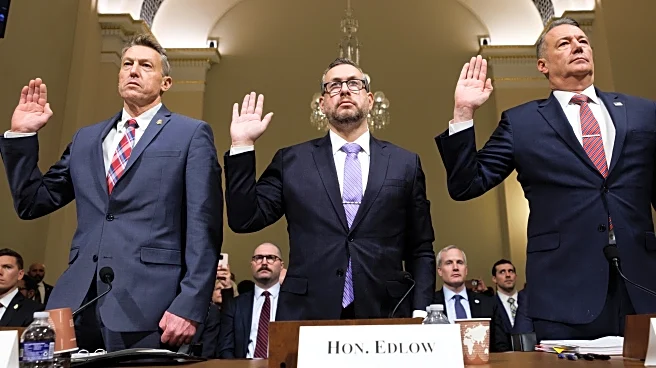What's Happening?
The COP30 summit in Brazil has faced significant challenges in reaching a consensus on phasing out fossil fuels. Despite efforts from over 80 countries, including Germany, to push for a plan to phase out fossil fuels,
oil-producing countries have strongly opposed the move. The European Union criticized the draft agreement for lacking ambition, as it omits direct mention of fossil fuels. The summit was extended into Saturday after delegates failed to seal a deal, with fossil fuels being a major sticking point. A joint declaration from more than 30 nations, including Germany, France, the UK, and Australia, criticized the omission of fossil fuels from the draft deal.
Why It's Important?
The inability to reach a consensus on phasing out fossil fuels at COP30 highlights the ongoing global divide over climate change mitigation strategies. The lack of a clear plan to reduce fossil fuel dependency could hinder efforts to combat climate change, as emissions from coal, oil, and gas are major contributors. This outcome may affect international climate policies and the commitments of countries to reduce their carbon footprints. The disagreement also underscores the tension between economic interests of oil-producing nations and the environmental goals of other countries.
What's Next?
Negotiators may continue discussions to find common ground, but the lack of a decisive agreement could lead to prolonged debates in future climate summits. Countries advocating for stronger climate action may seek alternative alliances or agreements outside the COP framework. The summit's outcome may influence domestic policies in participating countries, potentially leading to increased pressure on governments to implement more ambitious climate measures independently.











